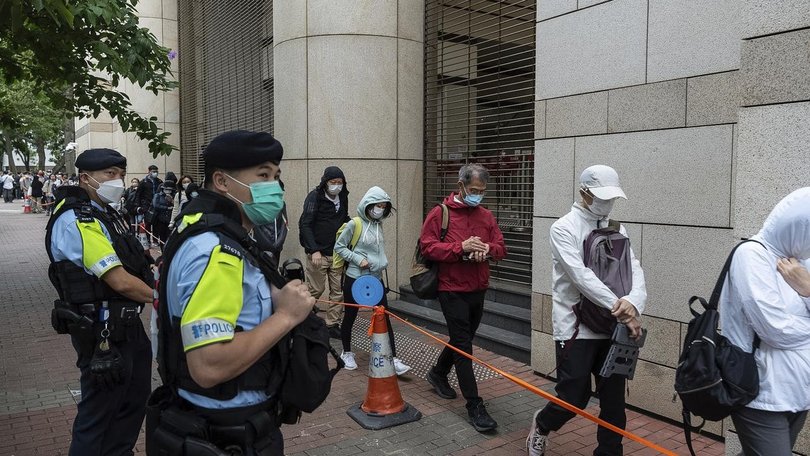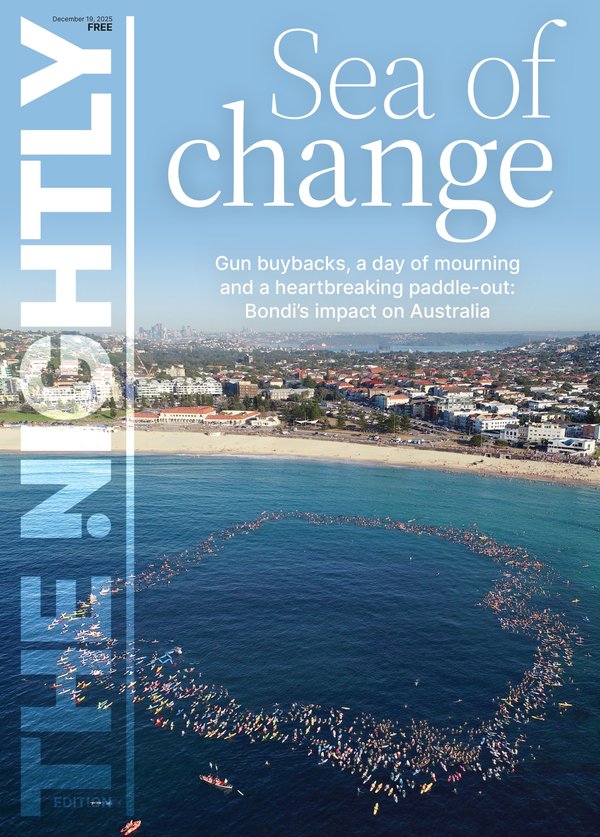Hong Kong subversion trial finds 14 pro-democrat activists guilty in landmark decision

A Hong Kong court found 14 opposition figures guilty in the city’s largest-yet national security trial that targeted scores of pro-democracy activists.
Judges in the once-freewheeling finance hub convicted the defendants of subversion charges under a 2020 national security law imposed by Beijing in the wake of mass street protests calling for greater freedoms.
A total of 47 people, including prominent activist Joshua Wong and former lawmaker Claudia Mo, were accused of conspiring to subvert state power by holding unofficial primary elections. Sixteen contested the charges and received verdicts Thursday.
Sign up to The Nightly's newsletters.
Get the first look at the digital newspaper, curated daily stories and breaking headlines delivered to your inbox.
By continuing you agree to our Terms and Privacy Policy.The defendants had hoped to secure a majority in the former British colony’s legislature. That would have given them the power to block the city leader’s agenda, and even theoretically force the chief executive to resign by rejecting budget proposals.
“This is a trial of the pro-democracy movement in Hong Kong,” said Eric Lai, research fellow at Georgetown Center for Asian Law. “The court verdict would set examples of whether non-violent assemblies or civil voting, activities that have a long tradition in Hong Kong, are now deemed national security crimes.”
Two of the defendants, former district councillors Lawrence Lau and Lee Yu-shun, were found not guilty.
The verdicts signalled the government’s determination to crack down on political dissent, after China’s sweeping national security law silenced street protests and pressured dozens of opposition groups to disband. They were handed down by three High Court judges selected from a panel handpicked by the city’s former leader.
More than 200 members of public watched the trial at the court in western Kowloon, with some lining up overnight. Diplomats including those from the EU, France and US were among foreign representatives observing the hearing.
Most defendants were denied bail since their arrests three years ago, and face a maximum penalty of life in prison when sentenced. The severity of punishments will reflect the extent of pressure faced by courts to “fully toe the government’s line on all elements of the national security law,” said Thomas Kellogg, executive director at Georgetown Center for Asian Law.
The rulings come as authorities seek to burnish the city’s reputation as a destination for businesses and tourists after its image was dented by its pandemic self-isolation and political unrest.
Authorities signalled their intent to continue cracking down on perceived threats this week by using a new national security law for the first time, arresting an imprisoned former activist for allegedly making seditious Facebook posts from behind bars with the help of others.
At least 299 people have been arrested and 159 charged under the national security law or a colonial-era sedition law since July 2020, according to research by ChinaFile and data compiled by Bloomberg. That includes Jimmy Lai, the 76-year-old media mogul who faces life in prison in a months-long trial over security charges.
c2024 Bloomberg L.P.
